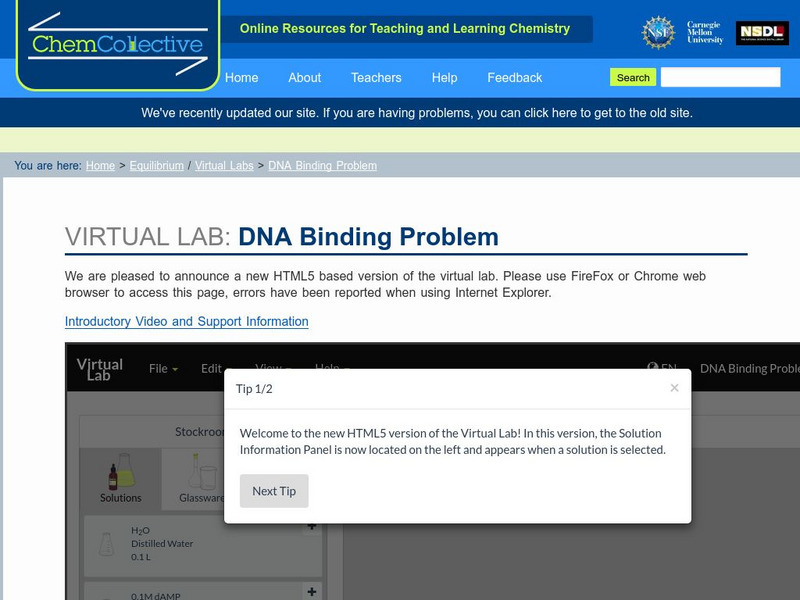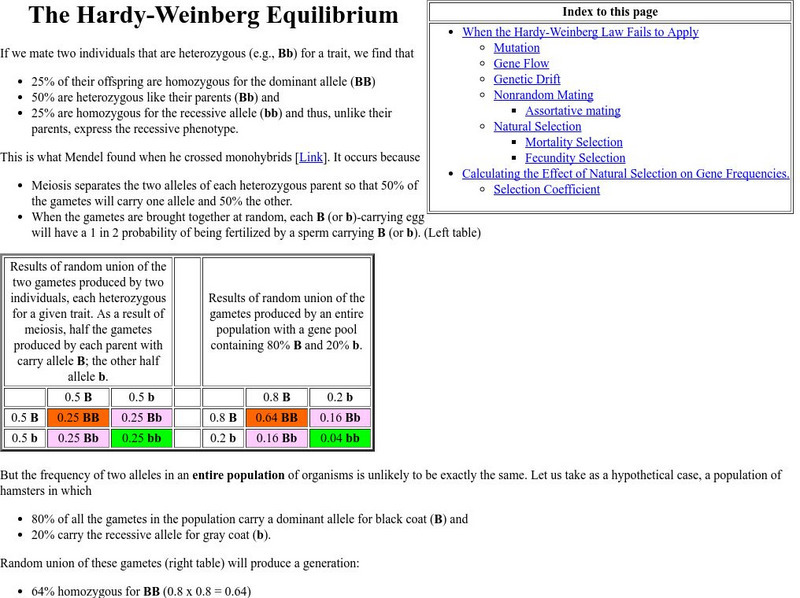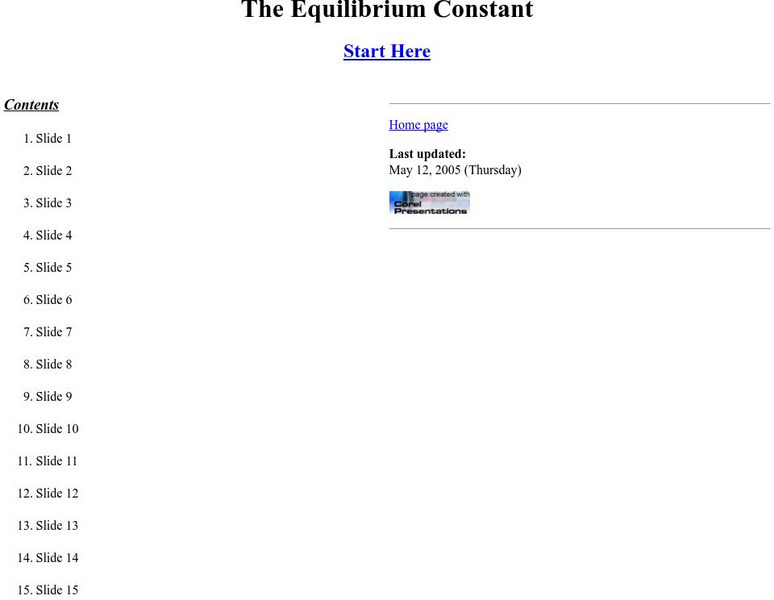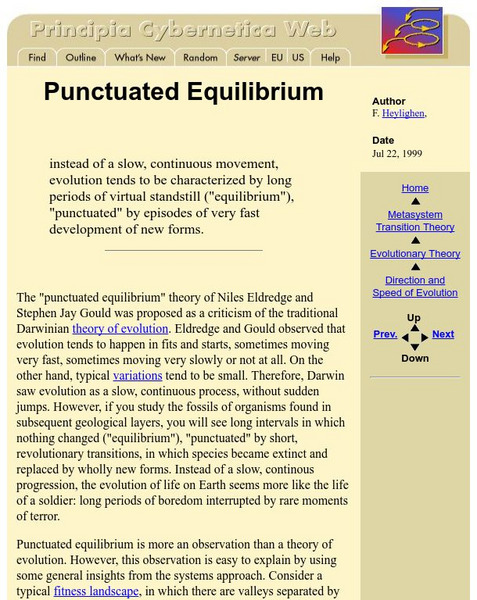Chemistry Collective
Chem Collective: Dna Binding Problem
In this activity, students explore equilibrium constants in biochemical systems by measuring the binding constant of a DNA-Dye reaction.
University of Guelph
University of Guelph: Physics Tutorials: Torque and Rotational Motion
Tutorial on torque, rotational motion, and rotational equilibrium. Includes equations, concepts, example and practice problems.
Texas Education Agency
Texas Gateway: Phase Changes
Learn how to interpret a phase diagram, explain Dalton's Law, and describe the state of equilibrium between a liquid and a gas, a liquid and a solid, and a gas and a solid. This resource contains in-depth explanations and multiple...
Physics Aviary
Physics Aviary: Practice Problems: Static Equilibrium Level 3
Find the tension in two ropes when the ropes are pulling at unequal angles.
Physics Aviary
Physics Aviary: Practice Problems: Static Equilibrium Level 1
Find the tension in two ropes when one of the ropes is horizontal.
Physics Aviary
Physics Aviary: Practice Problems: Static Equilibrium Level 2
Find the tension in two ropes when the ropes are pulling at equal angles.
Sophia Learning
Sophia: Science Lessons and Interactives: Solubility Equilibrium
Created to teach students of the 21st century, SOPHIA is bringing the solubility straight to your fingertips. Become the commander of your own learning experiences as you take part in this interactive lesson.
Chemistry Collective
Chem Collective: Dna Dye Binding: Equilibrium and Buffer Solutions
Students examine equilibrium and buffer solutions in a biological setting.
University of Hamburg
University of Hamburg: The Hardy Weinberg Equilibrium
Discusses the historical background leadingto the development of the Hardy-Weinberg principleand the assumptions of the principle. Providesmathematical and graphical illustrations ofthis principle.
Biology Pages
Kimball's Biology Pages: Hardy Weinberg Equilibrium
Discusses conditions needed for the Hardy-Weinberg Law to hold true and demonstrates calculations involving allelic frequencies to illustrate this principle.
CK-12 Foundation
Ck 12: Solubility Equilibrium
[Free Registration/Login may be required to access all resource tools.] Students write the solubility product constant expressions for nearly insoluble ionic compounds and perform calculations for compounds and solubility.
Sophia Learning
Sophia: Practice W/ Equilibrium: Lesson 1
This lesson provides the learner with example problems on mechanical equilibrium. It is 1 of 2 in the series titled "Practice w/ Equilibrium."
Upper Canada District School Board
Tom Stretton's Chemistry Pages: The Equilibrium Constant
This illustrated slideshow presents the chemistry concept equilibrium constant in a chemical reaction.
Other
Principia Cybernetica Web: Punctuated Equilibrium
Starts with a definition of Punctuated Equilibrium, followed by an explanation of this "Observation," and how it fits with other evolutionary theory.
Khan Academy
Khan Academy: Changes in Equilibrium Price and Quantity: The Four Step Process
Analyze some step-by-step examples of shifting supply and demand curves. This resource is designed for students who are taking a college-level microeconomics course.
Khan Academy
Khan Academy: Market Equilibrium, Disequilibrium, and Changes in Equilibrium
In this lesson summary review and remind yourself of the key terms and graphs used in the analysis of markets. Topics include how to use a market model to predict how price and quantity change in a market when demand changes, supply...
Khan Academy
Khan Academy: Market Equilibrium
The actual price you see in the world is a balancing act between supply and demand.
TeachEngineering
Teach Engineering: Perching Parrot
Students explore the concepts of center of mass and static equilibrium by seeing how non-symmetrical objects balance. Using a paper cut-out shape of a parrot sitting on a wire coat hanger, they learn that their parrot exists in stable...
TeachEngineering
Teach Engineering: Rocking the Boat
The concepts of stability and equilibrium are introduced while students learn how these ideas are related to the concept of center of mass. They gain further understanding when they see, first-hand, how equilibrium is closely related to...
Khan Academy
Khan Academy: Lesson Summary: Long Run Self Adjustment in the Ad as Model
In this lesson summary review, remind yourself of the key terms and graphs related to the long-run self-adjustment mechanism. The long-run self-adjustment mechanism is one process that can bring the economy back to "normal" after a...
Simon Fraser University
Chem1 Virtual Textbook: Energetics of Chemical Change
Energetics of chemical change is a section of a larger overview on Chemistry, which covers a variety of aspects. This section focuses on energetics and equilibrium, and chemical energetics. Examples, formulas, and pictures are provided.
Other
Sustainable Scale: Ecosystem Functions and Services
Authors make a case for the delicate state of equilibrium of an ecosystem. Also describes the important functions and services of ecosystems.
Curated OER
Equilibrium Wages
Descriptions, examples, and graphs are used to help explain equilibrium wages.
Curated OER
Equilibrium Wages
Descriptions, examples, and graphs are used to help explain equilibrium wages.
Other popular searches
- Dynamic Equilibrium
- Chemical Equilibrium
- Hardy Weinberg Equilibrium
- Thermal Equilibrium
- Market Equilibrium
- Punctuated Equilibrium
- Equilibrium Prices
- Genetic Equilibrium
- Equilibrium Constants
- Prue Calculus Equilibrium
- Equilibrium Quantities
- Price Equilibrium




















